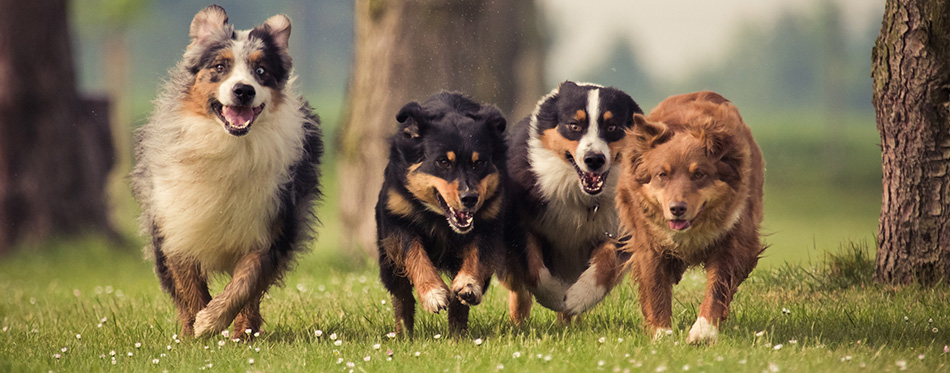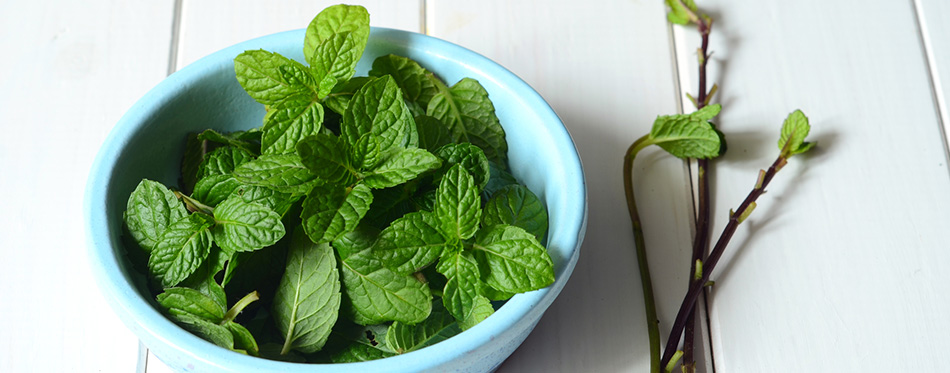Keeping your dog safe and healthy is obviously one of your most important responsibilities as an owner. These days, there are all sorts of supplements and oils out there which promise various health benefits. One of those which has been getting a lot of coverage is peppermint oil, which many people believe to have benefits in killing and/or repelling fleas. Other owners want to use this oil for other skin conditions to relieve their pet’s skin irritation or itching. But before you apply anything onto your dog, you want to be 100% certain that it is safe. Now is not the time to completely switch away from regular flea and tick treatments. In fact, peppermint oil may not be as safe for dogs as it is for humans.

Is Natural Always Better?
Many people strongly believe in products that are labeled ‘natural’, always believing them to be better than anything manufactured. However, this is not always the case and it is not a helpful mindset to stay in. To begin with, there are many natural plants out there that are harmful to dogs. Many products have essential oils added to them, but these are chemical compounds of some description. Also, you should bear in mind that ‘natural’ is entirely unregulated, so it doesn’t carry the same weight as something like ‘FDA approved’.
Many supplements are marketed with minimal controls or testing, which is a fact that should be alarming to many pet owners. Also, you should bear in mind that products which are manufactured to smell appealing to humans don’t necessarily have the same effect on dogs. Your pooch’s nose has millions more cells than your own, so what smells pleasant to you may overpower your furry friend. This isn’t intended to put you off all natural remedies, but it should nudge you towards doing your research before buying any natural dog remedies.
Effects of Peppermint Oil
Essential oils such as peppermint are extracted from aromatic oils in plants. Menthol is the main ingredient in this particular oil. Some research has pointed towards health benefits in humans such as killing bacteria, yeasts, and mites. It has also been shown to soothe conditions such as coughs and skin ailments too. However, it is connected to some issues including muscle pain and mucous membrane irritation. Also, some people also have allergic reactions. In dogs, the main benefit proposed by researchers is a supplement or alternative to the usual flea and tick treatments.
Find out more about Flea Treatment for Dogs.
Does Peppermint Oil Affect Fleas?
For many hundreds of years, peppermint was used as an insect repellent. However, in modern times, most people have switched to powerful chemical alternatives. Several studies have found it to repel fleas, ticks, and mosquitos, while others have not produced conclusive evidence either way. The one important fact that you should know is that peppermint oil does not kill fleas. Some peppermint oil flea killer products usually contain other ingredients – it is not the oil that is actively killing the parasites.
In terms of repelling fleas, peppermint oil may help, but studies have shown other essential oils are more effective in this purpose. Two other factors which can play a role include the oil concentration and the method of application used.
Whichever type of flea control you use on your dog, you want to make sure that it properly controls the flea outbreak. If you leave it untreated, it can lead to further health complications such as the spread of bacterial and viral diseases. Also, it can result in flea-related dermatitis, and even anemia in young dogs.
Read here our guides on Essential Oils for Fleas on Dogs and Flea Powder for Carpet.
As for products which contain peppermint essential oils, these generally contain much lower concentrations of peppermint, reducing toxicity risks. However, you should always avoid using this if your dog’s skin is already irritated. Regardless, it is worth double checking that the producer has performed all the proper safety tests. Buying from a reputable brand is always worthwhile when your dog’s health and safety is concerned.
Check out our articles on Flea Collars for Dogs and Flea Shampoo For Dogs.
Does Peppermint Oil Help Dog Allergies?
Some people choose to use peppermint oil on the skin of their dogs to relieve their irritation and scratching. There is some evidence to suggest that it can be effective against common causes of irritation such as bacteria, fungi, and mites. On the flip side, for some dogs, this oil may actually lead to allergies or further irritation. If you notice your dog is scratching a lot, you should get a diagnosis from the vet to find out what you can do about it. They are likely to be able to prescribe remedies that relieve the issue. Ultimately, the question of whether or not peppermint oil helps dog allergies still remains a gray area. And then there are the safety concerns to think about too.
Is Peppermint Oil Safe for Dogs?
Using essential oils to treat various dog ailments is a relatively new phenomenon. Researchers have not yet been able to fully conclude on potential risks, proper dosages, and effectiveness. However, there have been some adverse reactions found. Animals are more sensitive to oils than us, so some that are safe for us can be harmful to your pets. If you have a cat, you should never use peppermint oil as felines are particularly sensitive.
Skin and mucous membrane irritation are two possible side effects of peppermint oil use on dogs. The strong smell may be disorienting for your canine companion. Other more serious issues can occur when there is overdosing on the compounds in the oil which are broken down by the liver. This is more likely to occur in puppies, older dogs, and those with already existing liver diseases.
If your dog is suffering from peppermint toxicity, the most common symptom is that they will vomit. Other possible issues include lethargy, tremors, poor coordination, and trouble breathing. If your dog is showing any of these signs and there is peppermint oil on their skin, you should wash the area thoroughly with dishwashing detergent.
Ultimately, there hasn’t been a huge amount of research done on the subject, so it is always better to stay cautious rather than diving in and using something which you are unsure about. If the peppermint oil trend continues, there is likely to be more research conducted in the future, but for now, we simply don’t have enough information about it.

Can Dogs Eat Peppermint?
Now that we have discussed peppermint oil, you may be curious as to whether dogs can eat peppermint at all. Peppermint is toxic for dogs when ingested in big quantities, but you should still be able to grow it in your garden without any issues. The smell is usually so strong that dogs will naturally turn away from it anyway. Most dogs have good natural instincts for determining what is good for them and what isn’t. Before offering your dog anything which contains peppermint, you should always consult with your vet, as they will have a better idea of what is okay for them to eat.
Conclusions
There is no doubt that fleas can be highly problematic for dogs and you should treat them as soon as possible. But don’t automatically assume that the natural solution is better than the chemical one. A lot of vets suggest that you shouldn’t use peppermint oil or any other essential oil on your pet, and it is worth taking into account the advice of the experts. If you use the oils to treat any of your own ailments, you should listen to any safety precautions which your vet suggests.
We still don’t have all the information when it comes to peppermint oil and dogs, so it is always better to stay on the cautious side at the moment. It is likely that future studies will give you more information on the effects of peppermint oil. There are plenty of other preventative flea treatments out there to choose from. Also, there are a lot of ways to relieve your dog’s itchy skin. As we always advise, it is better to speak to your vet before treating your dog with anything that you are unsure about.
As for the peppermint plant itself, there is evidence to suggest that large amounts of it can be harmful to your dog. However, the smell is strong enough to repel most canines away from trying enough of it to make themselves sick. If you are unsure, try growing it in a more restricted area where it is well away from your dog’s paws. It is always better to be safe than sorry when it comes to the health and wellbeing of your four-legged friend.

